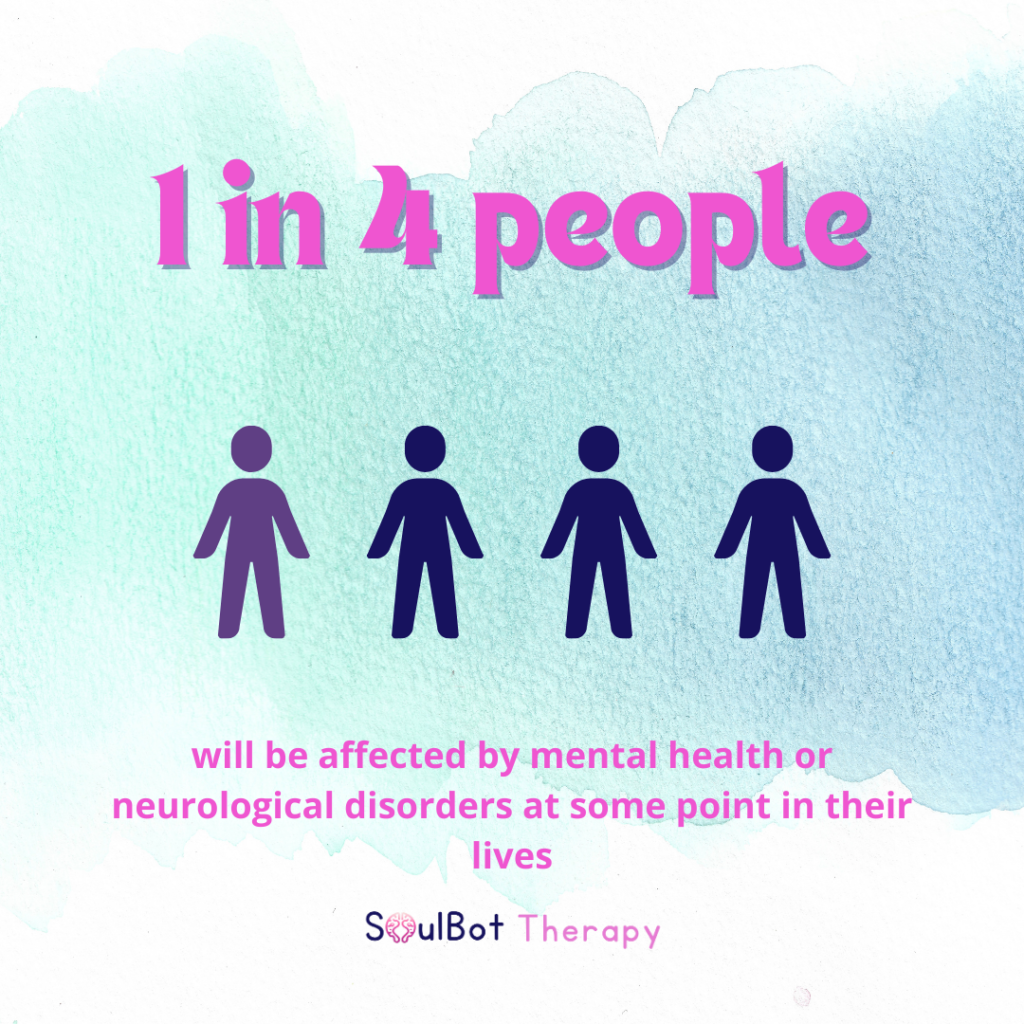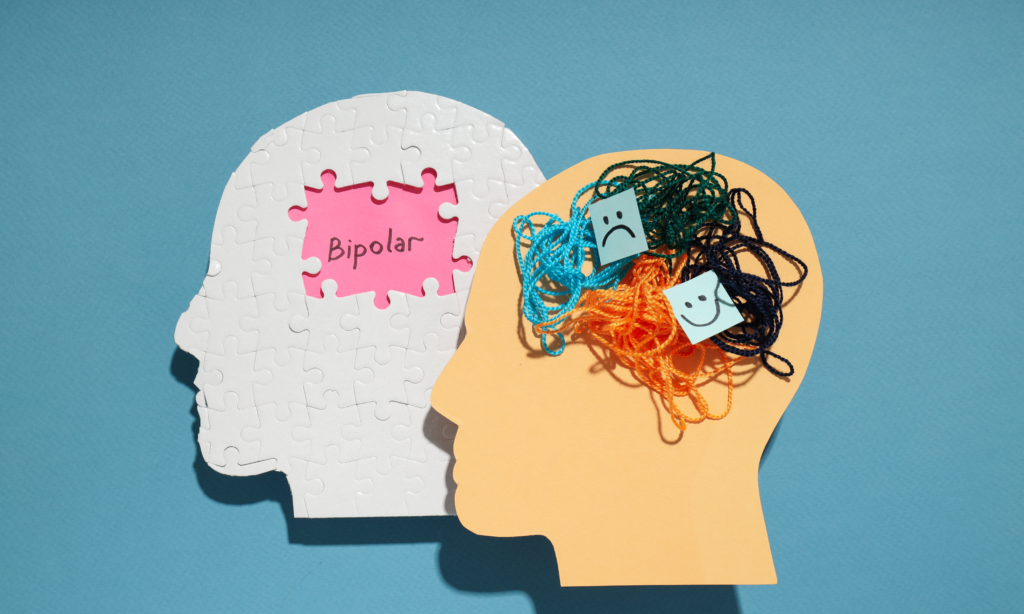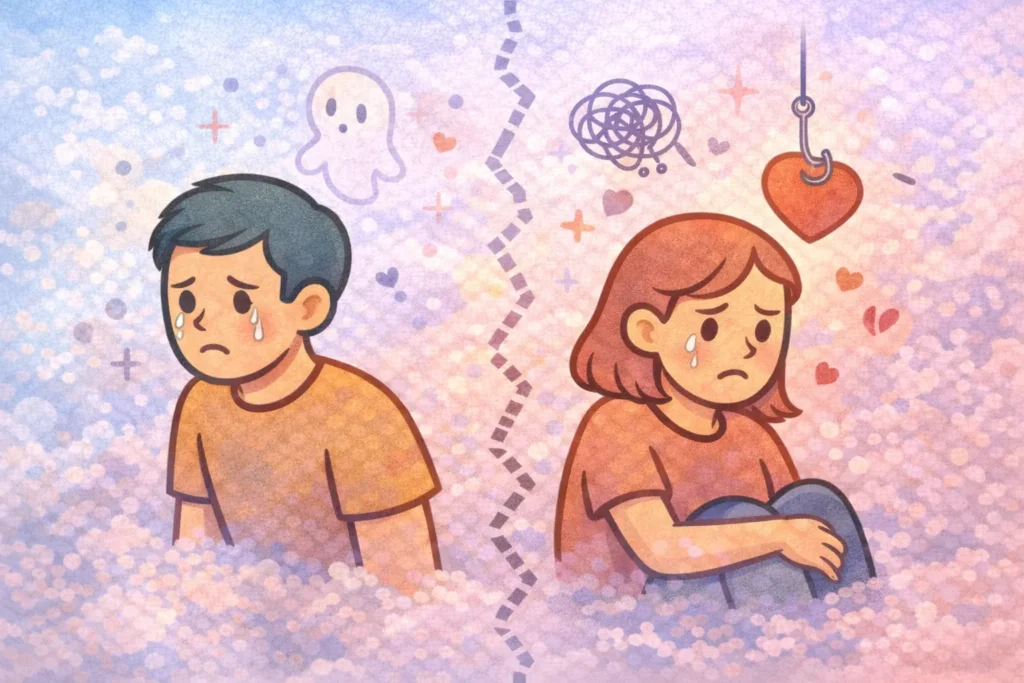Mental health disorders are still taboo in India, but we all have days when we feel anxious, sad, or overwhelmed. However, when these feelings become persistent and start interfering with daily life, they might indicate a mental illness. Understanding these conditions is the first step toward seeking support and improving well-being.
According to the National Institute of Mental Health (NIMH), over 59.3 million U.S. adults lived with a mental illness in 2022, highlighting the widespread impact of mental health disorders.
Let’s break down the different types of mental disorders, their symptoms, and how they affect individuals.
What Are the Most Common Mental Health Disorders?
Mental health disorders are categorized into several types. Below is a list of mental disorders that affect millions worldwide:
✔ Anxiety Disorders – Includes generalized anxiety disorder, panic disorder, and phobias. These conditions cause excessive worry, fear, and sometimes panic attacks.
✔ Mood Disorders – These conditions, such as major depressive disorder and bipolar disorder, involve intense fluctuations in mood and energy levels.
✔ Obsessive-Compulsive Disorder (OCD) – Individuals with OCD often experience persistent intrusive thoughts (obsessions) that lead to repetitive behaviours (compulsions), such as excessive cleaning or checking.
✔ Post-Traumatic Stress Disorder (PTSD) – Trauma-related disorders can lead to symptoms like flashbacks, nightmares, and emotional distress, making daily life challenging.
✔ Eating Disorders – Conditions like anorexia, bulimia, and eating disorders revolve around an unhealthy preoccupation with food and body image.
✔ Personality Disorders – Long-term patterns of thought and behaviour, such as those seen in borderline or antisocial personality disorder, can affect relationships and overall functioning.
✔ Schizophrenia and Psychotic Disorders – These disorders can alter a person’s perception of reality, leading to hallucinations, delusions, and disorganized thinking.
🔗 According to the World Health Organization (WHO), mental disorders contribute significantly to the global burden of disease, affecting millions worldwide.

How Do Mental Disorders Affect People?
Not everyone experiences mental health disorders in the same way. Some may have mild symptoms that come and go, while others face challenges that impact their work, relationships, and overall well-being.
For example;
🔹 Anxiety Disorders – These can be manifested as social nervousness, yet some individuals manage daily activities despite their discomfort.
🔹 Depression – In contrast, depression may cause a loss of motivation, making even routine tasks feel overwhelming.
🔹 Schizophrenia – Distinguishing reality from delusions can be particularly challenging for individuals with this condition.
Regardless of severity, mental health concerns are valid and deserve proper attention. Seeking support from a trusted individual or using AI wellness tools like SoulBot for online therapy can be beneficial.
What Are the Key Symptoms of Various Mental Health Disorders?
While each disorder has unique symptoms, some common signs include:
🔹 Struggling with constant worry, restlessness, and a racing heartbeat are key indicators of anxiety disorders.
🔹 Meanwhile, mood disorders, such as depression and bipolar disorder, often lead to fatigue, persistent sadness, and diminished interest in daily activities.
🔹 On the other hand, individuals with obsessive-compulsive disorder (OCD) experience intrusive thoughts that trigger repetitive behaviours, making it difficult to focus on anything else.
🔹 Similarly, post-traumatic stress disorder (PTSD) manifests through distressing flashbacks, recurring nightmares, and a strong urge to avoid trauma-related situations.
🔹 In contrast, psychotic disorders alter a person’s perception of reality, causing hallucinations and delusions that interfere with daily functioning.
🔹 At the same time, eating disorders involve extreme behaviours like restrictive dieting, excessive eating, or an unhealthy obsession with body weight and appearance.
Which Mental Health Disorders Are Most Treatable?
The good news is that most mental health disorders are treatable! Anxiety, depression, OCD, and PTSD often respond well. Here are some of the most manageable conditions:
🔹 Anxiety Disorders – Therapy, mindfulness, and medication can significantly reduce excessive worry and panic symptoms.
🔹 Depression – Cognitive Behavioral Therapy (CBT), lifestyle changes, and antidepressants help restore emotional balance.
🔹 Obsessive-Compulsive Disorder (OCD) – Exposure therapy and medication effectively manage obsessive thoughts and compulsions.
🔹 Post-Traumatic Stress Disorder (PTSD) – Trauma-focused therapy, EMDR, and support groups aid in recovery.
🔹 Mild to Moderate Bipolar Disorder – Mood stabilizers, therapy, and structured routines help in maintaining stability.
Early intervention is key! Seeking help as soon as symptoms arise increases the likelihood of effective management and recovery.
What Types of Mental Disorders Require Professional Treatment?
While some individuals manage mild symptoms independently, professional intervention is essential for severe conditions. Disorders that often require long-term support include:

🔹 Schizophrenia & Psychotic Disorders – Structured care, including medication and therapy, helps manage symptoms effectively.
🔹 Severe Bipolar Disorder – Stabilizing mood swings often requires a combination of therapy and prescribed medication.
🔹 Major Depressive Disorder – Persistent depressive symptoms may need therapeutic and pharmaceutical intervention.
🔹 Personality Disorders – These conditions benefit from specialized therapy and long-term coping strategies.
🔗 Programs like the National Mental Health Programme (NMHP) focus on making mental health care accessible to all.
What Are the Early Warning Signs of Mental Health Issues?
Recognizing the signs of mental health disorders early can prevent long-term struggles. Watch for:
🔹 A persistent feeling of sadness, hopelessness, or emotional numbness.
🔹 Avoidance of social interactions or withdrawal from loved ones.
🔹 Significant disruptions in sleep patterns, such as insomnia or excessive sleeping.
🔹 Frequent worry, fear, or intrusive thoughts that interfere with daily life.
🔹 Increased dependence on alcohol or substances as a coping mechanism.
If you or Someone you know is struggling with mental illness on a daily basis, don’t ignore these signs. Talking to a therapist, counsellor, or even an AI mental wellness assistant like SoulBot is a great first step.
Final Thoughts
Mental health plays a crucial role in overall well-being. To begin with, understanding the various types of mental disorders allows individuals to recognize symptoms early. As a result, they can seek timely help before conditions worsen. In many cases, mental therapy provides effective coping strategies, while medication helps manage severe symptoms.
Additionally, lifestyle changes such as regular exercise and mindfulness contribute to long-term mental wellness. Most importantly, support is always available, ensuring that no one has to face their struggles alone.
📌 Need guidance? Chat with SoulBot for personalized support and expert insights. You’re never alone on this journey!








